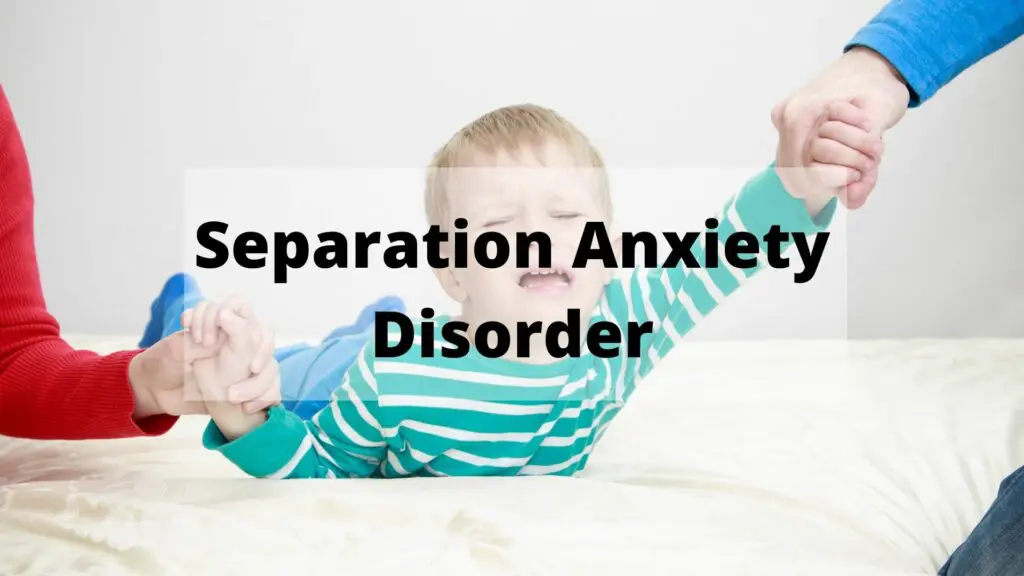Many people have experienced separation anxiety from being away from their loved ones for an extended period. This is a normal feeling that typically goes away once the person returns home or after they talk to their loved one over the phone. However, if these feelings do not go away and become overwhelming. Then you may be diagnosed with Separation Anxiety Disorder (SAD). SAD can affect both adults and children alike. However, it is more common in small children who are dependent on their parents for providing safety and security. If you think you may be experiencing symptoms of SAD, please consult your physician right away.
Contents
What is Separation Anxiety
Separation anxiety disorder is in characterization by overwhelming anxiety and excessive fears about being in separation from home or those people who are close to us.
When you say goodbye to your young child, it’s only natural for him or her to be worried. Separation anxiety is a normal stage in a kid’s development and crying, tantrums, and clinginess. All are indicators of separation anxiety are healthy reactions to separation.
Separation anxiety can begin at any age and recur until a child is four years old. While the intensity and occurrence of separation anxiety vary considerably from kid to child. It’s vital to remember that little concern about leaving natural. Even if your youngster is older.
With knowledge and the proper coping methods, your child’s worries can be addressed and should eventually go away entirely as they become older.
Separation anxiety isn’t only in children. It can also be in adults. Adults with separation anxiety have extreme fear that bad things will happen to important people in their lives, such as family members.
There’s no known cause for it. It’s frequently seen in connection with other anxiety-related disorders such as panic disorder, agoraphobia, and generalized anxiety disorder.
The condition can be challenging for children as well as their parents due to how disruptive it might become in the child’s life, especially when they start school.
Symptoms of Separation Anxiety
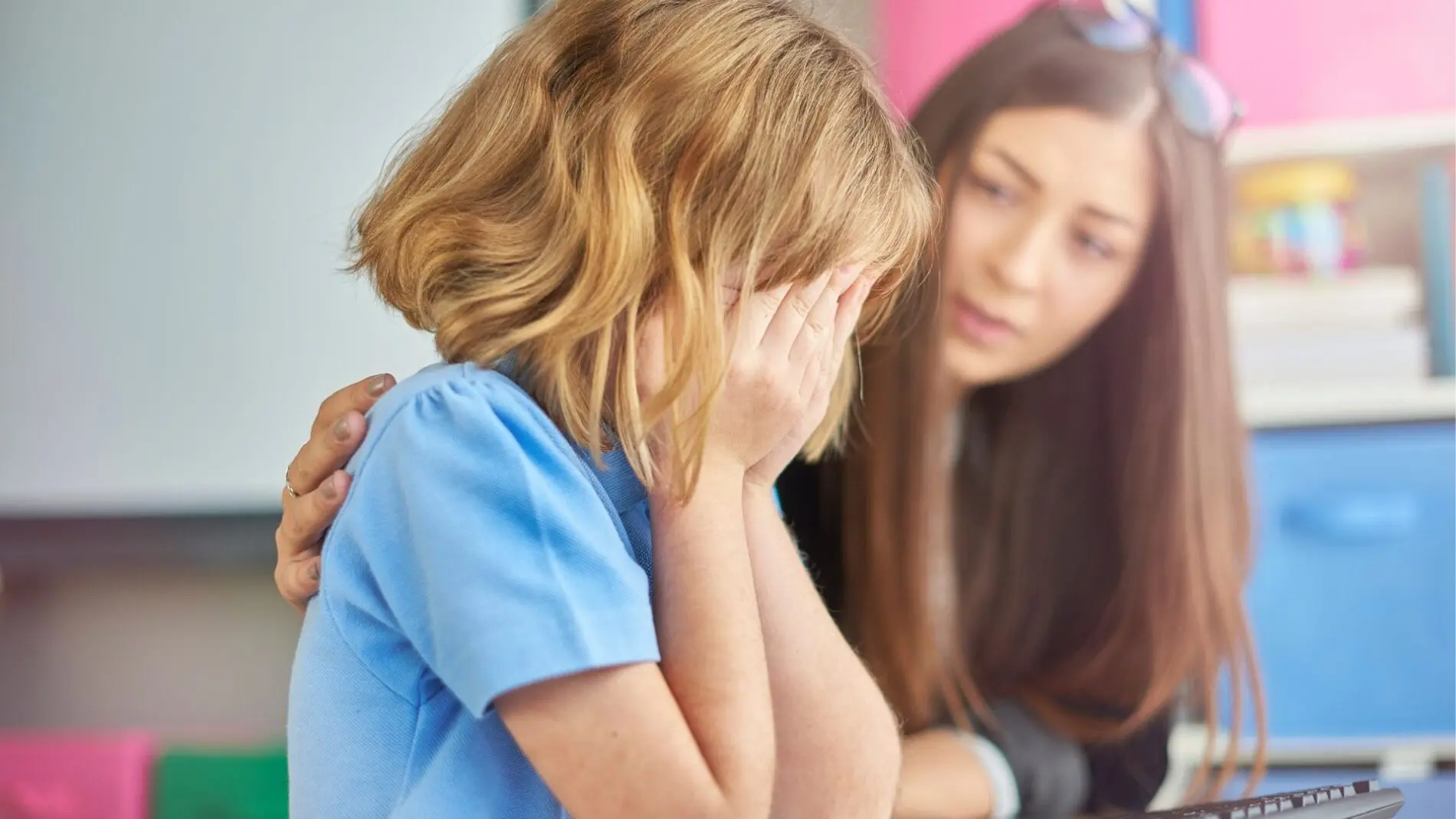
Symptoms of Separation Anxiety Disorder typically begin between six months and two years old, but may also appear later during childhood or adulthood with some types of phobias.
A diagnosis is usually made after a child has exhibited symptoms for at least four weeks during a year without any other apparent medical cause for concern which would produce similar signs and symptoms. Treatment options vary depending on the severity of the disorder and can include psychotherapy or medications.
Some of the most frequent indicators of separation anxiety disorder are:
- An unrealistic and lasting worry that something bad will happen to the parent or caregiver if the child leaves
- An unrealistic and lasting worry that something bad will happen to the child if they leave the caregiver
- Refusal to go to school to stay with the caregiver
- Refusal to go to sleep without the caregiver being nearby or to sleep away from home
- Fear of being alone
- Nightmares about being in separation
- Bed-wetting
- Complaints of physical symptoms, such as headaches and stomachaches
- Repeated temper tantrums or pleading
- Intense fear or guilt
Causes of Separation Anxiety
All children, even those under the age of four, have brief episodes of anxiety about being away from a parent and exhibit clingy behavior. These typical bouts generally take place between the ages of 18 months and 3 years old, although older youngsters might experience fleeting feelings of seclusion anxiety during stressful situations.
The distinction between this typical anxiety and a condition such as SAD is that a kid with separation anxiety will experience a long and strong feeling of worry about being in separation from known people and surroundings to the point where it is out of proportion to the actuality of the scenario.
Biological Factors
The brain has its chemicals, known as neurotransmitters, that communicate with one another to influence a person’s emotions. When serotonin and dopamine are “off,” anxiety can result from their imbalance.
Family Factors
A child can inherit his or her parent’s hair color, just as a kid might acquire his or her parent’s attitude. Furthermore, anxiety may be passed down through family members and others who are visibly nervous around a youngster.
Parents may inadvertently contribute to their child’s anxiety without even realizing it by the way they react to their child. Permitting a youngster to skip school when they are afraid of going. For example, most likely increases the youngster’s anxiety on the following school day.
Environmental Factors
A traumatic event (such as a divorce, sickness, or death in the family) might also induce separation anxiety disorder in children.
How Common Is Separation Anxiety
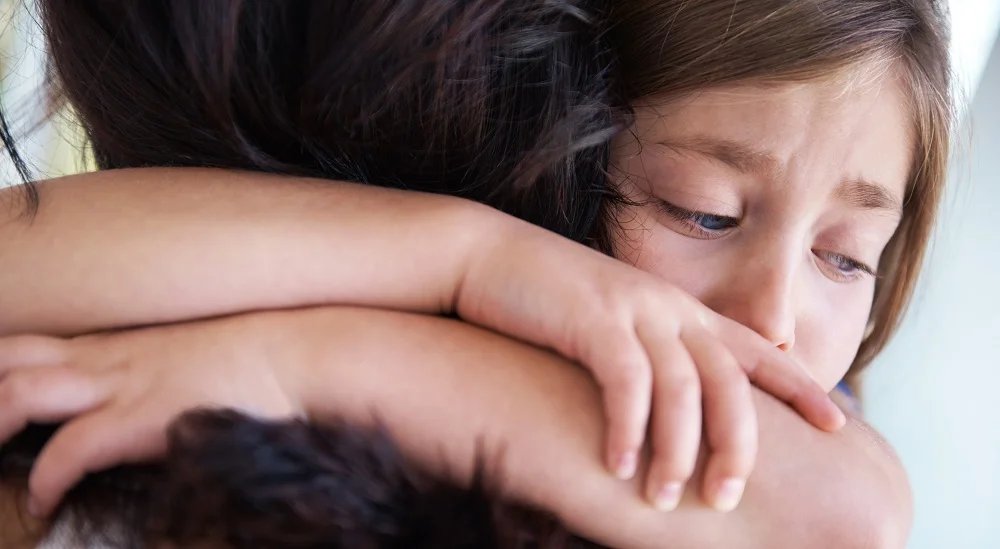
Anxiety disorders are one of the most prevalent types of mental, emotional, and behavioral issues found in youngsters. Every year, about 13 out of every 100 children 9 to 17 years old have an anxiety disorder.
Complications
The main symptoms of a separation anxiety disorder include excessive worry about being in separation from a parent or guardian. This disrupts daily activities and performance at school, work, or social situations.
Disorders that can accompany separation anxiety disorder include:
- Other anxiety disorders, such as generalized anxiety disorder, panic attacks, phobias, social anxiety disorder, or agoraphobia
- Obsessive-compulsive disorder
- Depression
Diagnosis
The diagnosis of separation anxiety disorder is by determining whether your child’s behavior is typical for his age or if the problem is real. Your child’s doctor may recommend that you see a psychologist or psychiatrist with expertise in anxiety disorders if any medical conditions rule out.
To identify separation anxiety disorder, your child’s mental health expert will likely give him or her a psychological evaluation, which may include a structured interview in which thoughts and feelings are discussed as well as behavior is observed. A separation anxiety disorder may exist alongside other mental illnesses.
How To Tell Separation Anxiety In Children
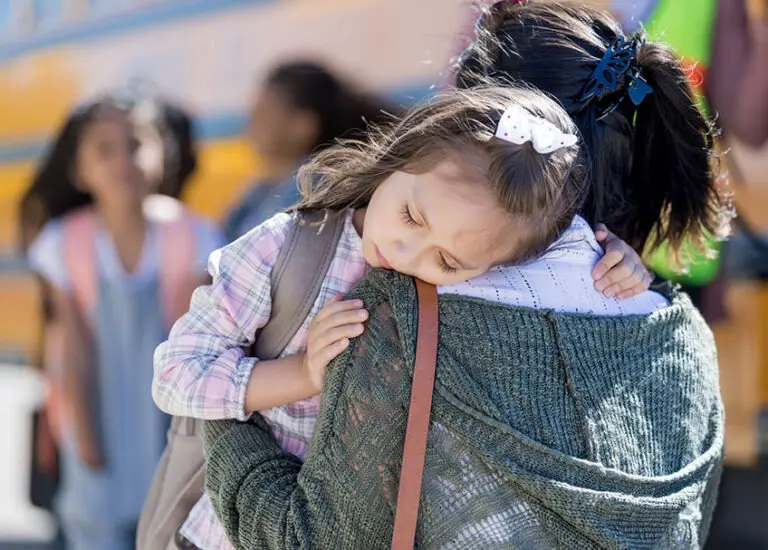
Some children experience separation anxiety, which is to be expected. Infant and toddler isolation is a natural phase in their growth, linked to forming an attachment to parents and other caregivers. Certain separation apprehensions and concerns are normal for older kids at specific ages.
Let’s assume your child is starting his first day of kindergarten. When he rises and prepares for school, goes there for the first time, and comes home crying that he does not want to return. He will likely be anxious and uncomfortable.
If this period of worry is short (he is consoled by assurance), lasts only a few days, and is followed by a return to his usual mood and activities, it’s probably normal separation anxiety.
However, if your child is in severe distress about being away from you during the school day (to the point where he or she becomes physically ill, can’t concentrate, isn’t soothing, and is in disruption in other activities), this might be a separation anxiety disorder.
Treatment
Medication and psychotherapy, sometimes in combination, are in use to treat anxiety associated with separation from a loved one. The goal of psychotherapy is to help people achieve greater control over their emotions by learning how to identify situations that cause them stress and then learn how to handle those situations differently.
CBT (cognitive behavioral therapy) is a good treatment for separation anxiety disorder. Your child can learn how to confront and manage their worries about separation and uncertainty during CBT. Parents may also understand how to give emotional support and assist their children in developing age-appropriate autonomy.
Sometimes, combining therapy with CBT can be beneficial if symptoms are severe. SSRIs, a type of antidepressant that targets the neurotransmitter serotonin, may be in use in older children and adults.
Lifestyle and Home Remedies
You can also help your child cope with a separation anxiety disorder by implementing the following techniques:
- Learn about your child’s separation anxiety disorder. You can also speak with your child’s mental health professional to understand the condition. Help in assisting your kid in understanding it.
- Stick to the treatment plan. Make sure you keep your child’s therapy appointments. It’s important to be consistent.
- Take action. Learn what sets off your child’s anxiety. To prepare to handle your child’s anxious feelings during separations. practice the methods discussed with the mental health expert.
Coping and Support
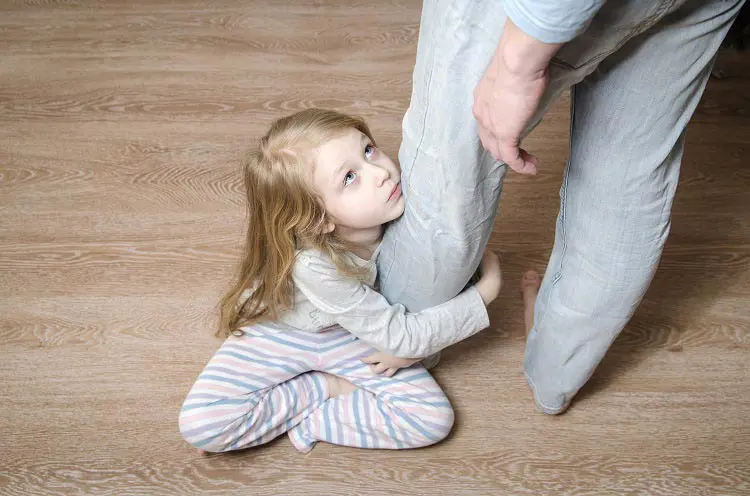
Coping with a kid who has an anxiety condition related to separation can be difficult. It may also cause conflict in the family or create a lot of worry and stress for parents.
Child psychologists can help you cope with your child’s condition and provide support. For example, the therapist may recommend that you:
- Demonstrate calm support. With the aid of your assistance. Encourage your youngster or loved one to try new things, face separation, and gain independence.
- Practice goodbyes. Leave your kid with a trustworthy caretaker for short periods to help your youngster realize that he or she can count on you to return.
It’s also critical to build and keep good relationships with people in your life so you can assist your kid more.
Conclusion
This is a very common condition that many people experience when they are in separation from someone or something for a long period. It can be debilitating and cause significant anxiety in some cases, but it’s not uncommon to feel this way after being away on vacation. Staying at home with your kids during the day while you work outside the home, or even just going to bed before your partner gets up in the morning. The good news is there are ways to cope with separation anxiety without medication. Even if you’re feeling like these symptoms might indicate more than typical feelings of homesickness or loneliness.
For more information, please contact MantraCare. Anxiety is a common mental health condition characterized by persistent feelings of worry, fear, and apprehension. If you have any queries regarding Online Anxiety Counseling experienced therapists at MantraCare can help: Book a trial Anxiety therapy session
